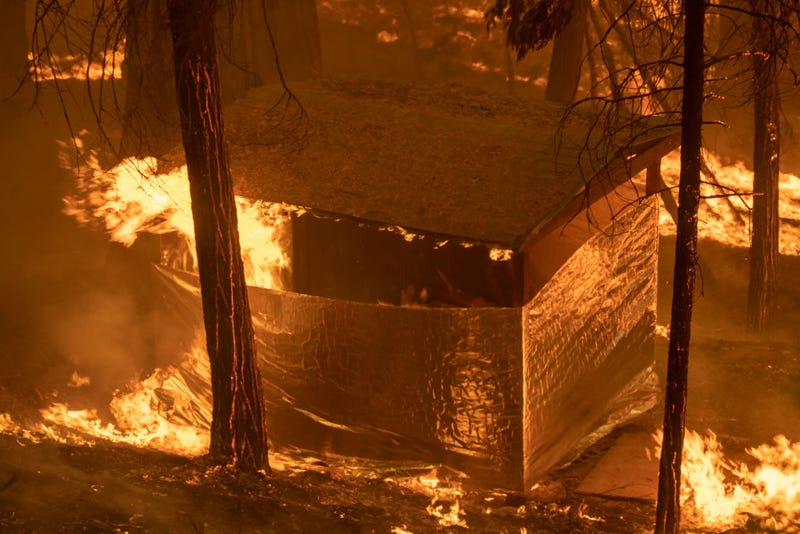
As California and Louisiana fight the effects of deadly, unprecedented natural disasters, both states are short on manpower after deploying their soldiers overseas.
Both California’s 40th Combat Aviation Brigade and Louisiana’s 256th Infantry Brigade Combat Team have been stationed in the Middle East, National Guard officials confirmed Wednesday.

“The primary mission of our National Guard is to fight and win our nation’s wars, and we’re manned, trained and equipped to do so,” Army Gen. Daniel Hokanson explained, describing their federal responsibility as foremost. “It’s those capabilities that allow us the ability to respond to our communities when they need us most.”
Ten states — including Louisiana —offered to help California fight more than 20 wildfires (active and extended attack) burning across the state, the National Guard said Wednesday.
Louisiana summoned all of its 8,000 available guardsmen to work extended shifts the next several weeks, aiding the recovery and cleanup from Hurricane Ida. But the damage is so extensive, at least 15 states are sending additional soldiers who begin arriving Tuesday, Defense One said.
“I want to let the soldiers and airmen who are deployed know that while they’re taking care of their federal mission and serving our nation, we’re at home, we’ve got their backs, and we are going to take care of the home front,” Louisiana’s Army Maj. Gen. Lee Hopkins said emphatically. “We look forward to their safe return soon.”
State officials with the National Guard met over the summer to make contingency plans for coordinated responses given the shortage of soldiers.
“If you track the number of days the National Guard was needed to provide support for civil authorities, last year was the highest year on record,” Richard Kidd, a Department of Defense deputy secretary for environment and energy, told Defense One in August.
Kidd said that record tally is anecdotal evidence of the increased demand for the National Guard’s support domestically.
California’s National Guard is small compared to other states, Baldwin told Defense One. “And we’re in a state that is constantly in a state of emergency.”


